“And now, we move into the lion face,” says Merche the Argentine yogi, opening her mouth and allowing her tongue to curl out past her lips. Her students follow suit. Tongues waggle and eyes pop from sockets, as the Atlantic drifts gently back and forth behind them.
Not far away, tips on crypto tokens are being exchanged, startups are being sold and new romances are blossoming. It’s a regular morning in the world’s first “digital nomad village” on the Portuguese archipelago of Madeira, also known as the island of eternal spring.
Digital nomadism — a phenomenon that emerged in the late 2000s — essentially means travelling around the world while working from your laptop. And as Covid-19 has allowed more people to work remotely, communities designed to cater to this demographic have begun to emerge.
In Madeira’s sleepy cove of Ponta do Sol, where the nomad village was first set up in February 2021, arrivals get access to a free coworking space, guidance on finding accommodation and permission to join the nomad’s Slack group, where a lively calendar of events — from mindfulness sessions to hiking and water sports — is posted every week.
The village is designed to be a one-stop shop to help aspiring nomads settle — at least for a few months — on the island. Since it opened 4,670 nomads have arrived on Madeira and Porto Santo, the neighbouring island, according to the local government.
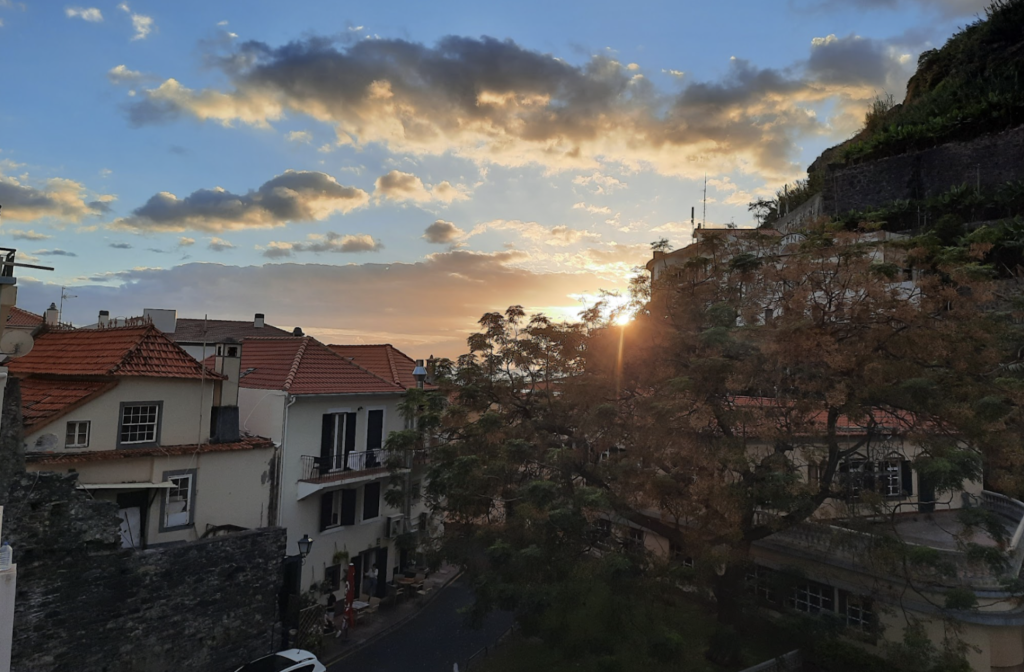
The project, developed in partnership with the local government and Startup Madeira, a local entity supporting entrepreneurs, is the brainchild of Gonçalo Hall, a digital nomad of four years and the chief executive of NomadX, a global digital nomad community and consultancy. So why was Madeira the island of choice?
“I’ve been in Chiang Mai, I’ve been in Bali — beautiful places. But in Madeira, there are epic hikes, waterfalls, the green, the ocean all in the same place. And we have the European infrastructure: fast internet, security, few internal borders. When I came to Madeira, it blew my mind,” he says.
“I was like, why am I going to Bali? Why am I going to all these other places when I could just work in a place closer to my [original] home in Portugal?”
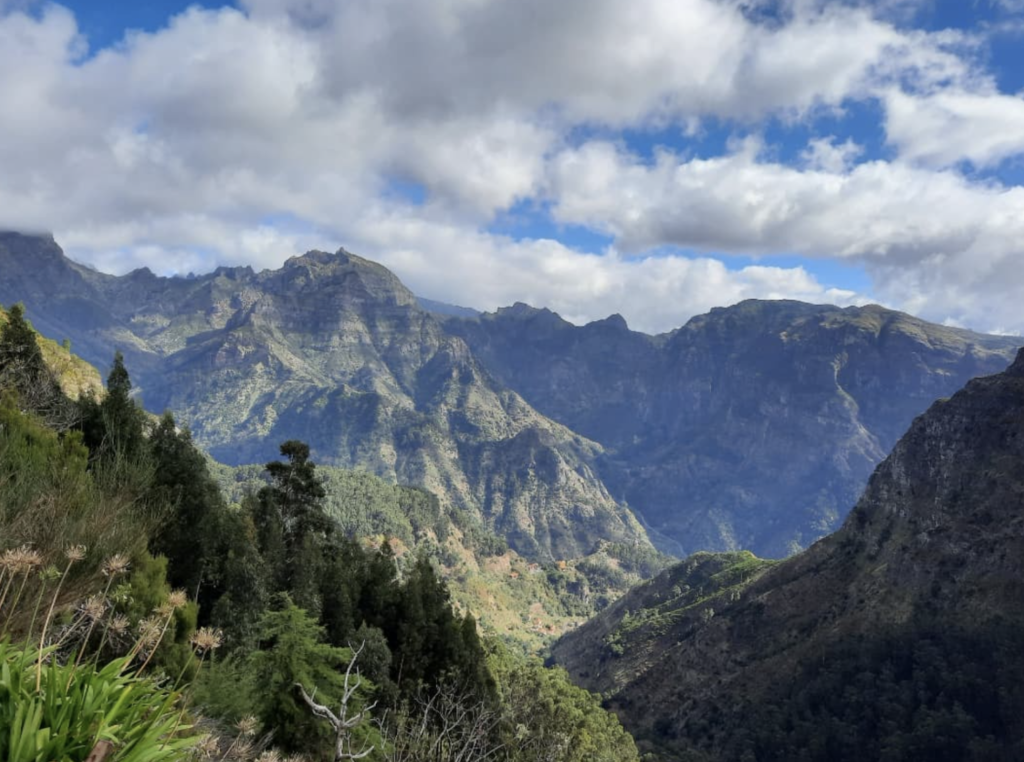
While this sounds like a lot of fun for remote workers who can afford to pack their bags and leave life behind, you might ask what’s in it for the people of Madeira. The answer lies in the fact that the island’s economy is heavily reliant on tourism — and the promise of longer-term travellers offered a financial lifeline at a time when the pandemic had ground regular tourism to a halt.
Ponta do Sol went from being a village filled with selfie-taking tourists to one filled with remote workers, as digital nomads snapped up the holiday apartments that had lain empty due to Covid 19.
A year on from its inception, Sifted visited the digital nomad village to see how it’s faring.
A land of plenty
When you first set foot in Madeira, it’s easy to forget you’re technically still in Europe. Its steep hills are swathed in banana trees and passion fruit plantations — a reminder that the island is geographically closer to Africa than it is to Portugal.
For the digital nomads making the place their temporary home, Madeira’s natural riches are matched only by the wealth of activities organised for the community.
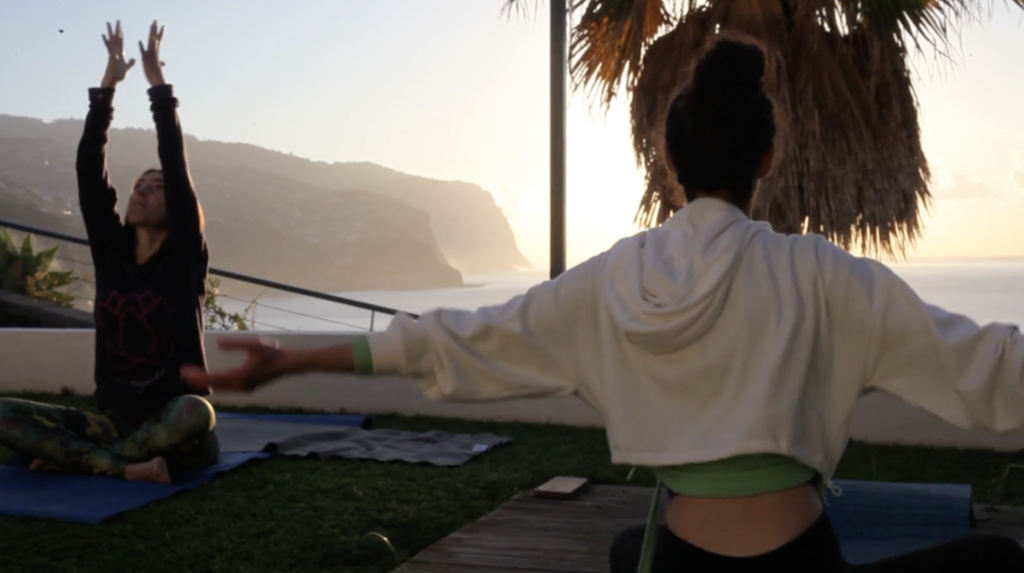
After early morning yoga with Merche, the nomads wander down to the coworking space to get a head start on the day. Located in a repurposed municipal building that overlooks the ocean, the atmosphere at the coworking club is calm and focused.
We hear cofounders plotting their go-to-market strategies, sales calls for major European tech companies and opportunists figuring out how to make a buck out of the steady flow of young, tech-savvy professionals now transitioning in and out of Madeira.
Come 10:30, people can take their pick between Nomad Coffee Club and a dog-walking meetup — Madeira’s nomads are keen supporters of the local dog shelter.
And if that wasn’t enough socialising to get you through the day, on Fridays there’s the regular nomad lunch at Steak & Sun, a local restaurant that revamped its menu to cater to the new visitors. There were still no vegan options on the menu during our visit, and the vegetarian option came with fish, but old habits die hard.
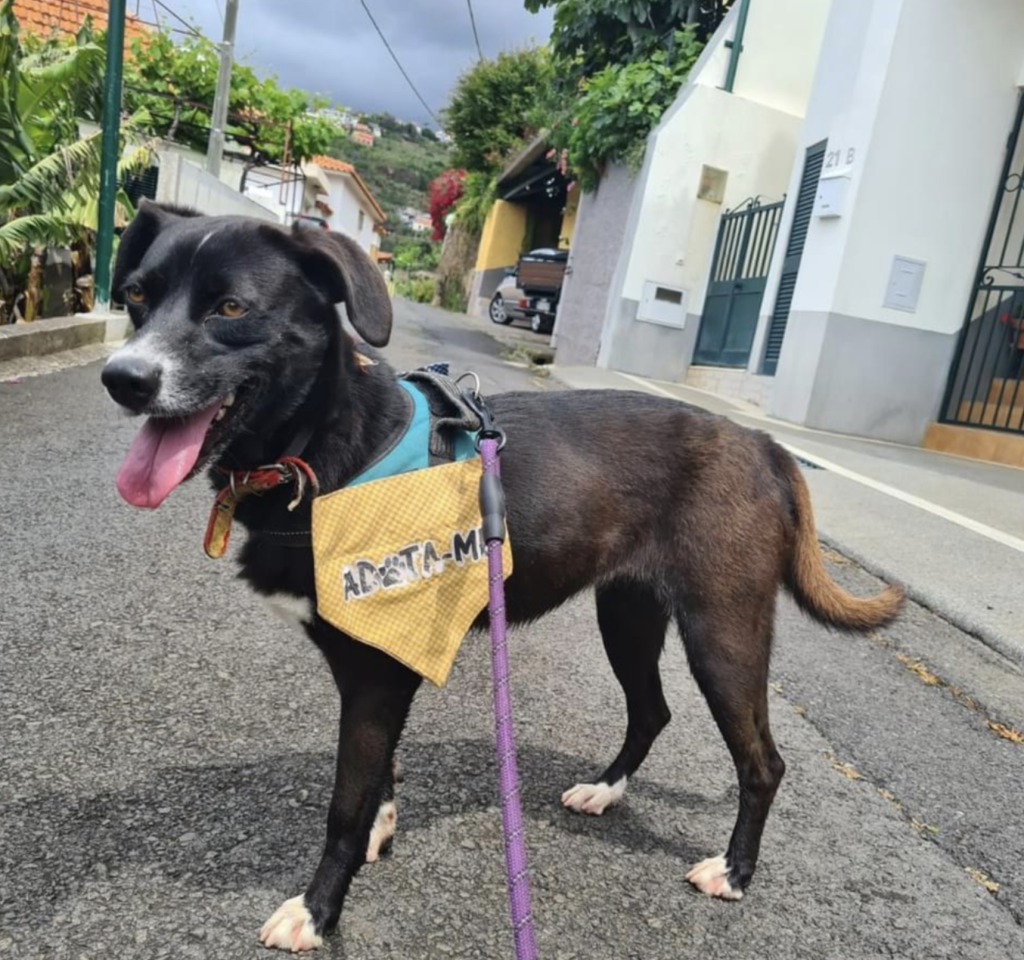
The fun continues into the evening. After work, the social calendar is dotted with open mic nights, storytelling sessions, Qigong classes, dance music events and workshops on how to navigate digital nomad visas and tax arrangements.
Burnout and burpees
If this all sounds like a lot, that’s because it is. Some residents in Ponta do Sol have to make a conscious effort to avoid social burnout, according to Merle Mak, who works as a community manager at the village.
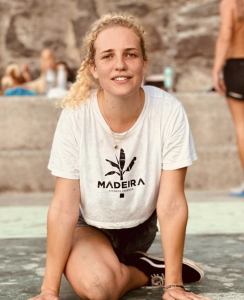
“It can be very social. In high season for nomads, which is in March until June, you might have to make a conscious effort to take a break from all the social interaction, depending on your personal social battery. You just have so many activities every day that you could participate in, that sometimes you don’t even notice when it’s a little bit too much and you just need the day off,” she says.
But if social exhaustion is to be avoided, physical exhaustion is actively encouraged. One of the mainstays of a typical week in the digital nomad village is the infamous Sweat and Swim fitness class, led by Madeira local and resident hunk, Luis Calado.
In November, the sun — with temperatures still hitting 22ºC during the day — goes down at 6pm; enough time for some burpees on the beachfront before dark.
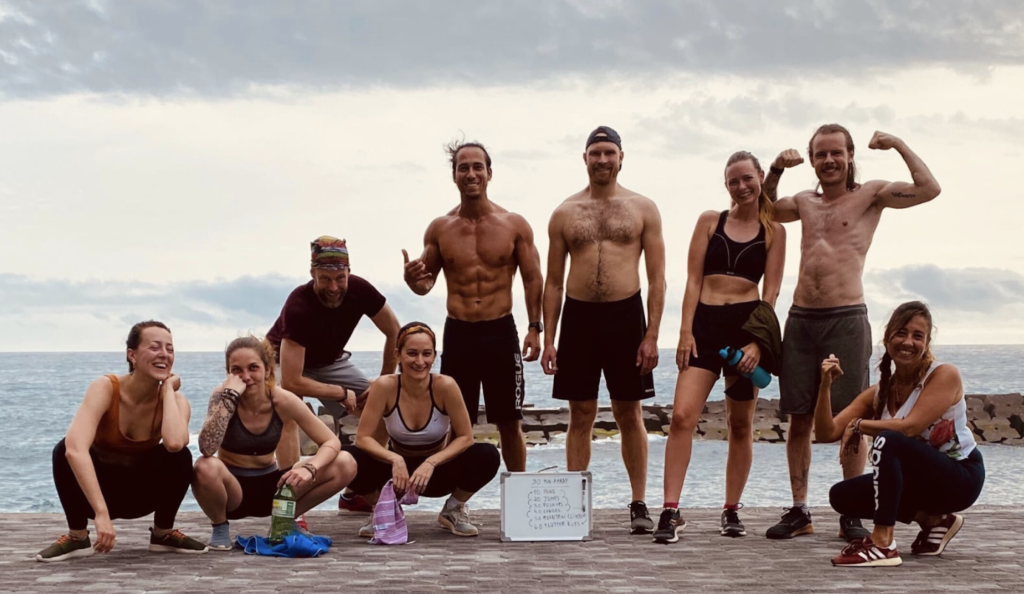
“These people are looking for experiences, but they’re also wanting to live with high standards and health and wellness is part of it,” says Calado. “Whether it’s fitness, hiking or running, people are very conscious of that.”
“Madeira is a love boat”
The island of Madeira isn’t just a place for sweat sessions and self-development; there’s also the potential to find love too.
Daniel Tulchinsky, originally from Israel, and Justyna Kurcharska, a nomad of 14 years from Poland, met in Bar Number Two in Funchal (Madeira’s capital) at the beginning of 2021, shortly after they both arrived on the island.
The two met on a double date, but they weren’t matched with each other at first. Kurcharska was actually dating Tulchsinky’s friend at the time — but it turns out Tulchinsky was more her taste.
“Justyna has this label for boys as cherries, we often joke about it. She was inspecting different cherries and then she harvested the cherry she wanted, so I was chosen,” says Tulchinsky.
“Every kind of cherry grows on this island…” says Kurcharska, grinning.
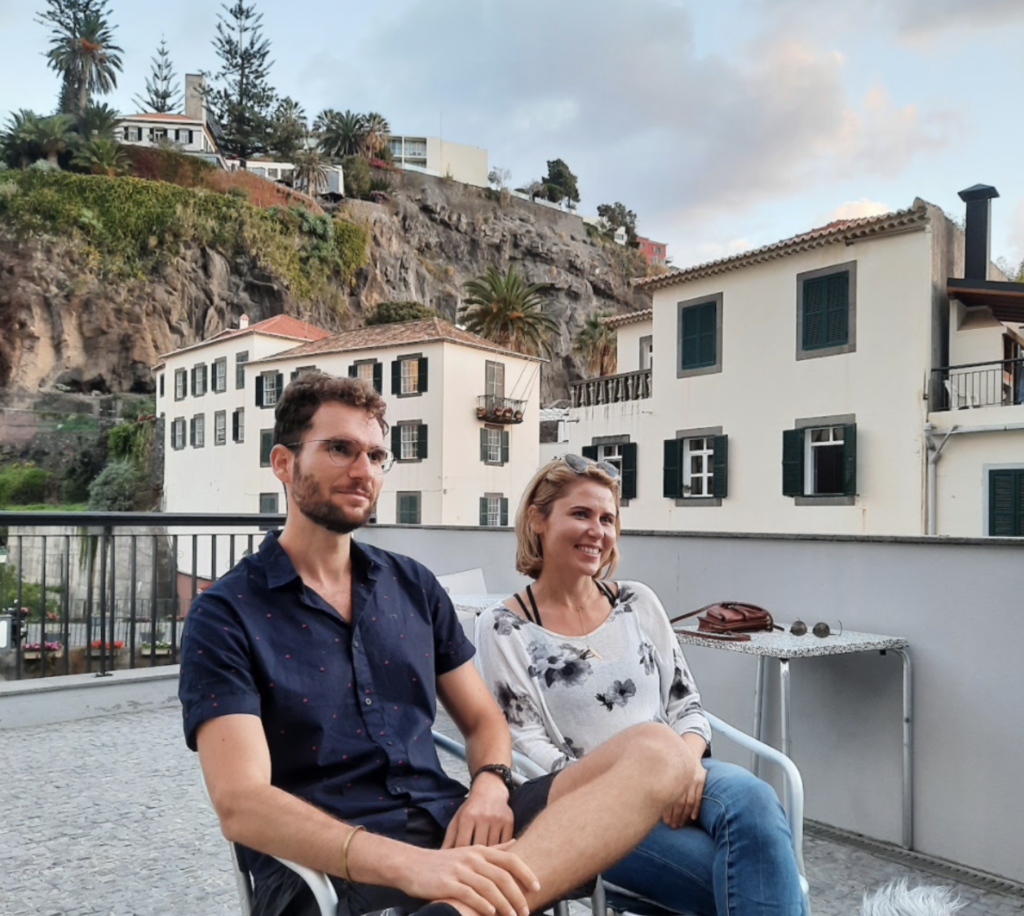
It’s true that Madeira attracts a wide variety of nomads to its shores. Typically, people associate digital nomads with a stereotype of young male web developers with man buns. But nomads in Madeira come from 108 countries and range from 18-80 years old, according to data that Startup Madeira gleaned from those who had registered at the village.
A conversation about love on the island is never too far away when speaking to nomads. Within days of arriving in Madeira, we found out about the island’s infamous “Love Boat”, which is exactly what you’re imagining: a white, two story catamaran with a party of over 100 dancing, drinking romance-seekers, sporting abs and Hawaiian garlands.
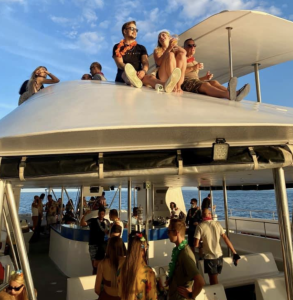
Kurcharska and Tulchsinky never went to the Love Boat themselves, but they heard about its myriad successes.
“Madeira itself is like a love boat,” says Kurcharska. “Educated, smart, well-travelled people come here, so it’s easy to find a person who has a similar mindset.
“It’s much better than Tindering: it feels like the people in Madeira have already been filtered.”
Living a dream
Our November visit to Madeira certainly felt like a little slice of paradise as we escaped the European winter, but that feeling was even stronger for the first digital nomad pioneers who arrived at the village.
When the project launched, many European countries were deep in lockdown as the Delta variant swept the continent.
“It was like stepping out of reality,” says Julie Buchik, a product manager for a Berlin-based startup who first arrived on the island early in 2021. “You know when people have been on vacation and then the holiday ends and they’re like, ‘Oh, it’s time to go back to reality.’ I’d like to say that it was kind of the reverse of that. I stepped out of a nightmare. It was like a bubble. It was like a dream.”
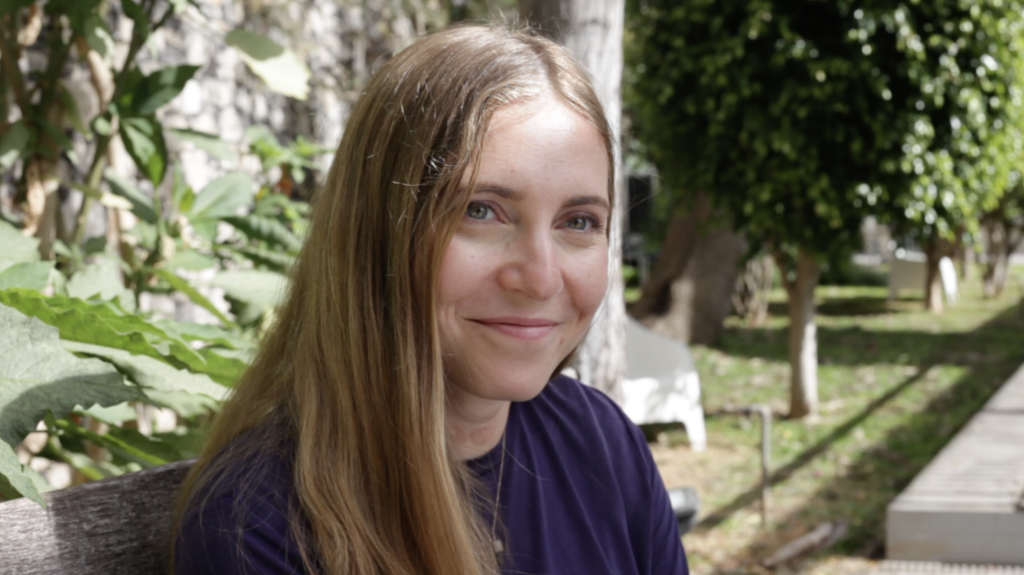
Community manager Mak remembers having similar feelings when she first arrived as a visitor to the village in April 2021.
“There were lots of gatherings and activities happening, so it was really a bubble from the rest of Europe,” she recalls. “The (digital nomad) community was very close. We kind of shut ourselves off from the local community in order to not endanger any locals, Covid-wise.”
Maria José Freitas, Ponta do Sol resident and owner of the Steak and Sun restaurant, said that the local community wasn’t concerned about the risk of Covid-19 being brought in by visitors: “Everyone had to take a PCR test on entry at the airport, we weren’t concerned about it.”
Word of this island paradise was starting to spread among other digital nomad communities across the globe, too.
Marketing consultant Andrea Callan was working remotely from Tenerife when she heard about the Madeira project: “I was seeing on various digital nomad Facebook groups about how Madeira had the world’s first digital nomad village and I was really excited and intrigued by that.”
What she found when she arrived didn’t disappoint.
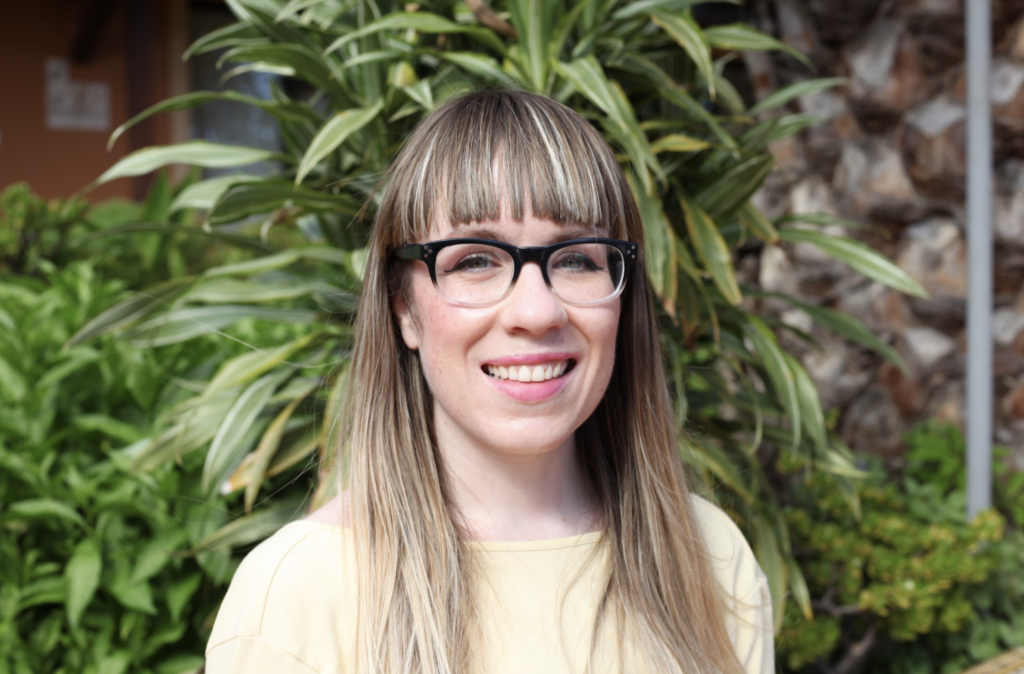
“When I arrived in Ponta do Sol it really reminded me of being back at university or sixth-form college, and I mean that in the most joyous way possible, because they were experiences that I didn’t anticipate ever being able to relive,” says Callan, gesticulating enthusiastically.
“There was just so much intellectual stimulation and curiosity around, ‘Who are these people? And what do they do and where are they from? And what kind of events are they putting together? And oh, wow, look at all these ideas that are happening.’”
Giving back?
The digital nomad village has been a long time in the making for founder Hall.
Originally, he had planned to create a centre for digital nomads in a small, mountainous town in Italy where he was living at the time. The plan was to capitalise on the trend of remote work and draw nomads to empty villages in an effort to repopulate them — as Spain is currently attempting to do with rural villages that have been declining for decades.
Hall now hopes that digital nomads can bring a new, young energy to Madeira, which carries a reputation of only attracting elderly holiday makers arriving on huge cruise boats.
“Before the nomads, Madeira was boring, the locals were bored to death. And the young generation was leaving because if you don’t work in tourism, there is nothing to do after some time. Now, it’s this dynamic place where people are coming and going,” he says.
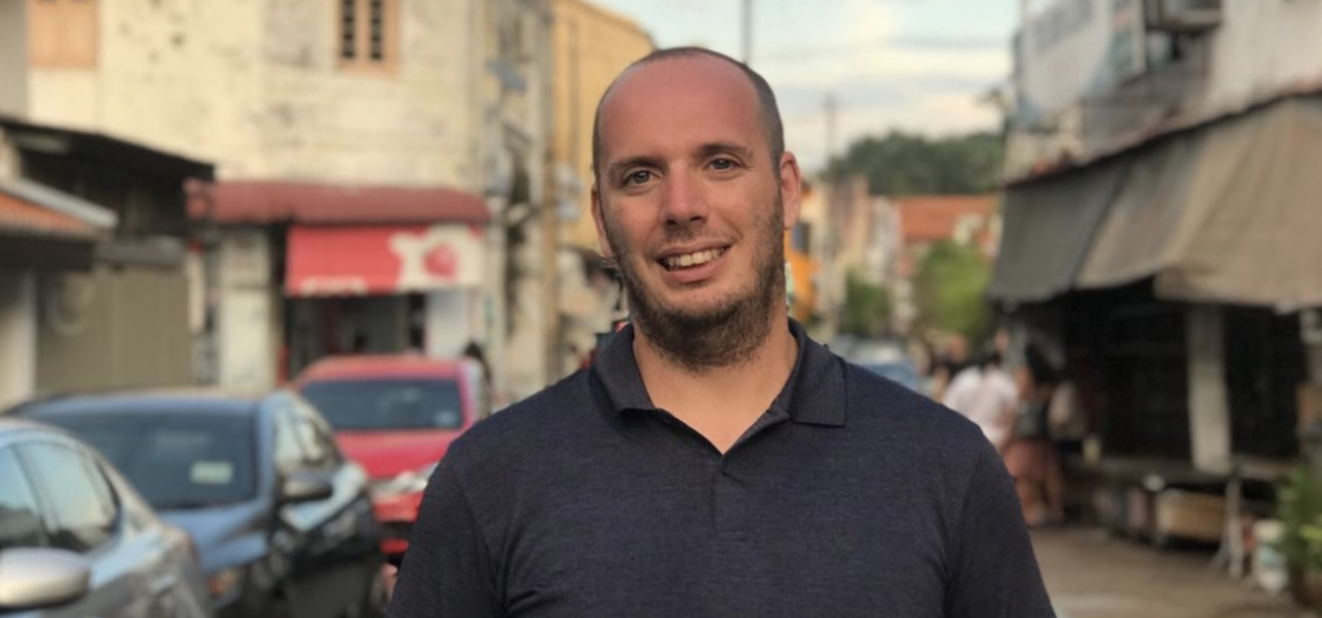
Ahead of our trip to Madeira, we questioned whether these digital nomads would integrate with the local community — buying from neighbourhood businesses or even learning a bit of Portuguese — or whether they’d create their own bubble of wealthy tech workers that sought to just have a good time.
The reality turned out to be a mixture: with some nomads caring deeply about the impact they made on the island, and others quite happy to remain completely cut off from the local community. Already there have been murmurings of nomads pushing up the price of housing, and even Hall himself admits that many nomads aren’t “conscious by default.”
One year on, it’s too early to tell what impact digital nomads will have on the island in the long run. But after a week of yoga, exercise, hiking, and winter sun, we found it easy to imagine that digital nomads will continue to flock to the island, whether they’re being encouraged to come or not.
Source: SIFTED


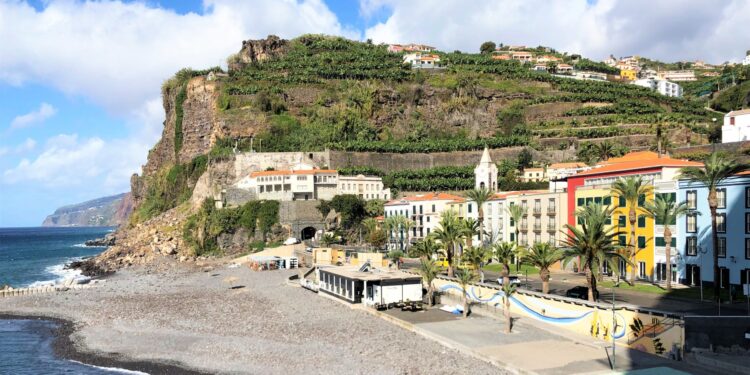

Recent Comments